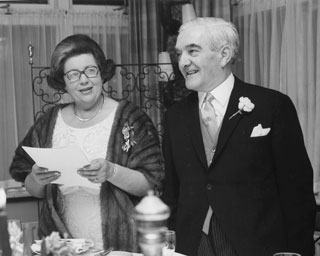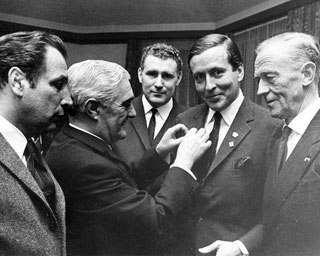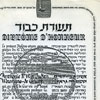Anthonie Pieter Wetemans and Judith Wetemans (de Graaff)
The Netherlands


Before and during the war, Anthonie Wetemans was a sports instructor and owner of a sports club in The Hague. From 1939 on he gave lessons twice a week to Harry de Wolf. Anthonie was a good friend of Harry’s father. These sports lessons continued during the war, despite the difficulties, until 1943. At that time Harry had to leave home due to the danger posed by the razzias. The Wetemanses decided to offer Harry a place to hide in their sports club at Noordeinde 16, The Hague.
Harry stayed there for 18 months, hiding quite comfortably in a space set up by the Wetemanses behind a false wall in the club. There was a bed, blankets, reading material, and candles.
Harry was not the only one hiding with the help of the Wetemanses. A number of other Jewish students were hidden in a similar manner: H. Boxhoorn, Ies Boxhoorn, Harry Nilsen, R. Erhelens, H. Shaffrath, and A.V. Oosten. The Wetemanses looked after all these people.
In 1943 I was caught by the Germans and set to work in Normandy, France. Shortly after I succeeded in escaping to return to the Netherlands via Belgium where I arrived in the beginning of 1944 and stayed with the family Wetemans. They offered me a place to hide in their sports school at the Noordeinde 16 in the Hague.
Harry Nilsson, Holocaust survivor
Judith Wetemans was mainly responsible for bringing them food, which was particularly difficult during the hunger winter. The financial aspect was never referred to. The Wetemanses acted out of friendly feelings toward their fellow human beings and a desire to resist the enemy.
The survivors maintained friendly contact with the Wetemans for many years after the war.
On April 14, 1986, Yad Vashem recognized Anthonie Wetemans and his wife, Judith Wetemans-de Graaff, as Righteous Among the Nations.



